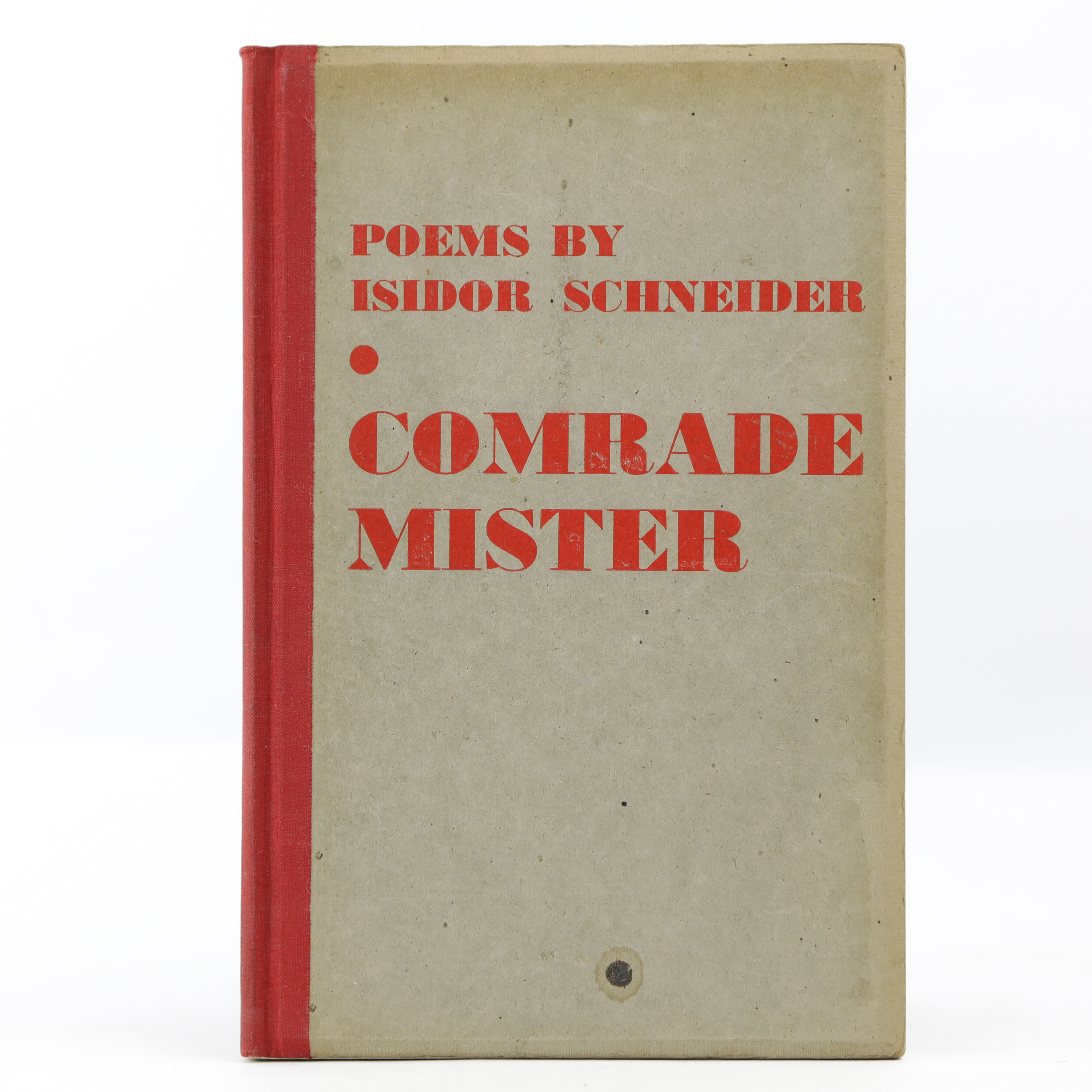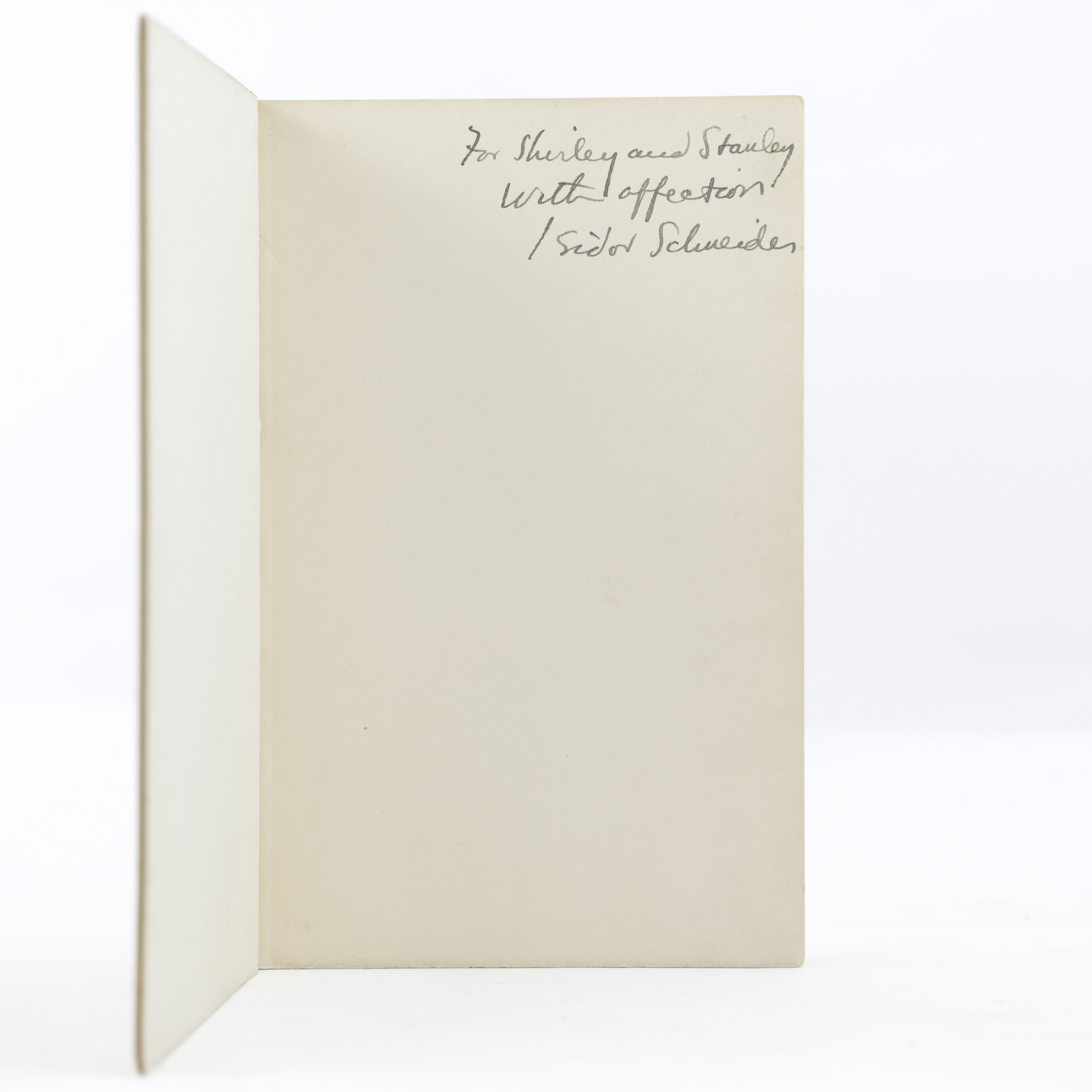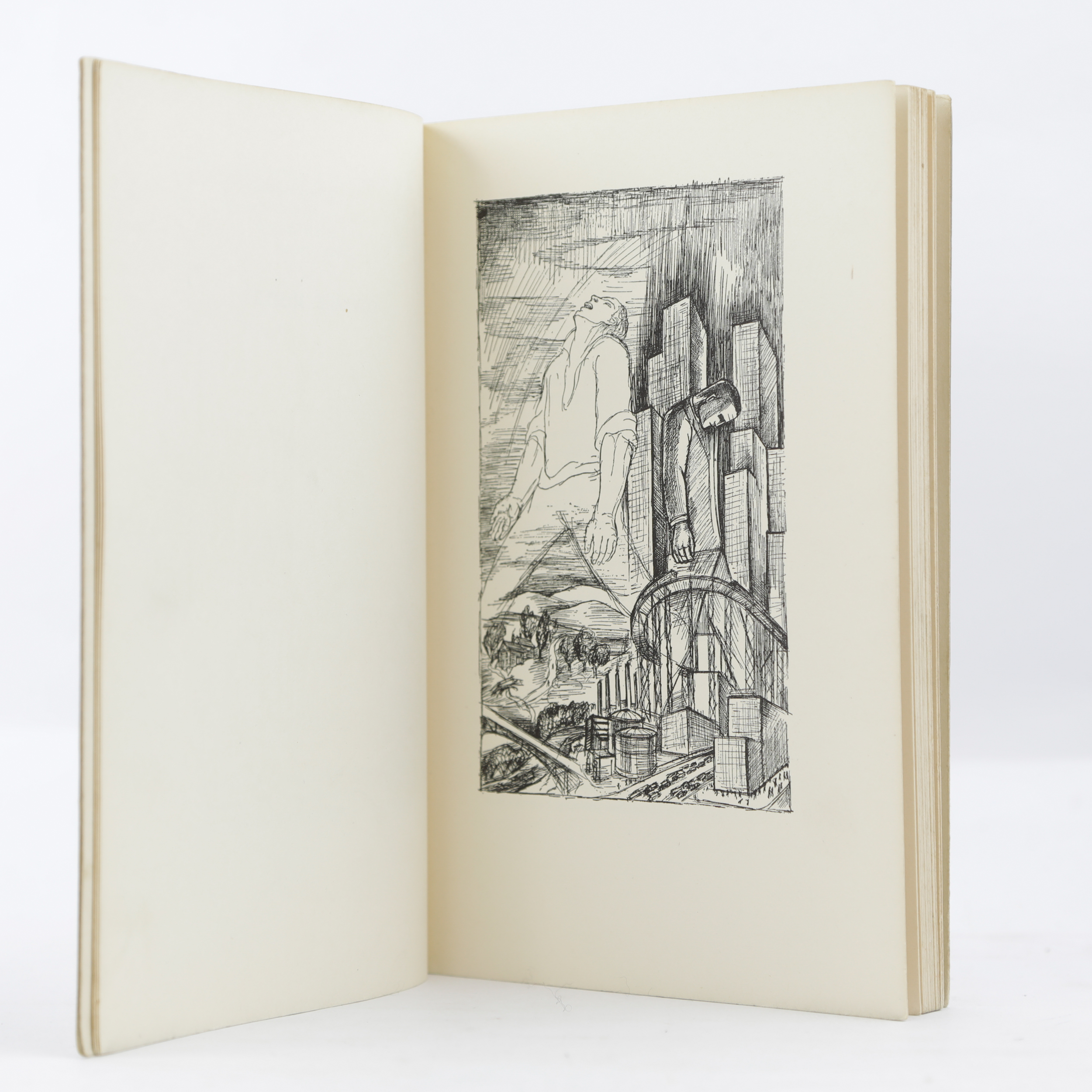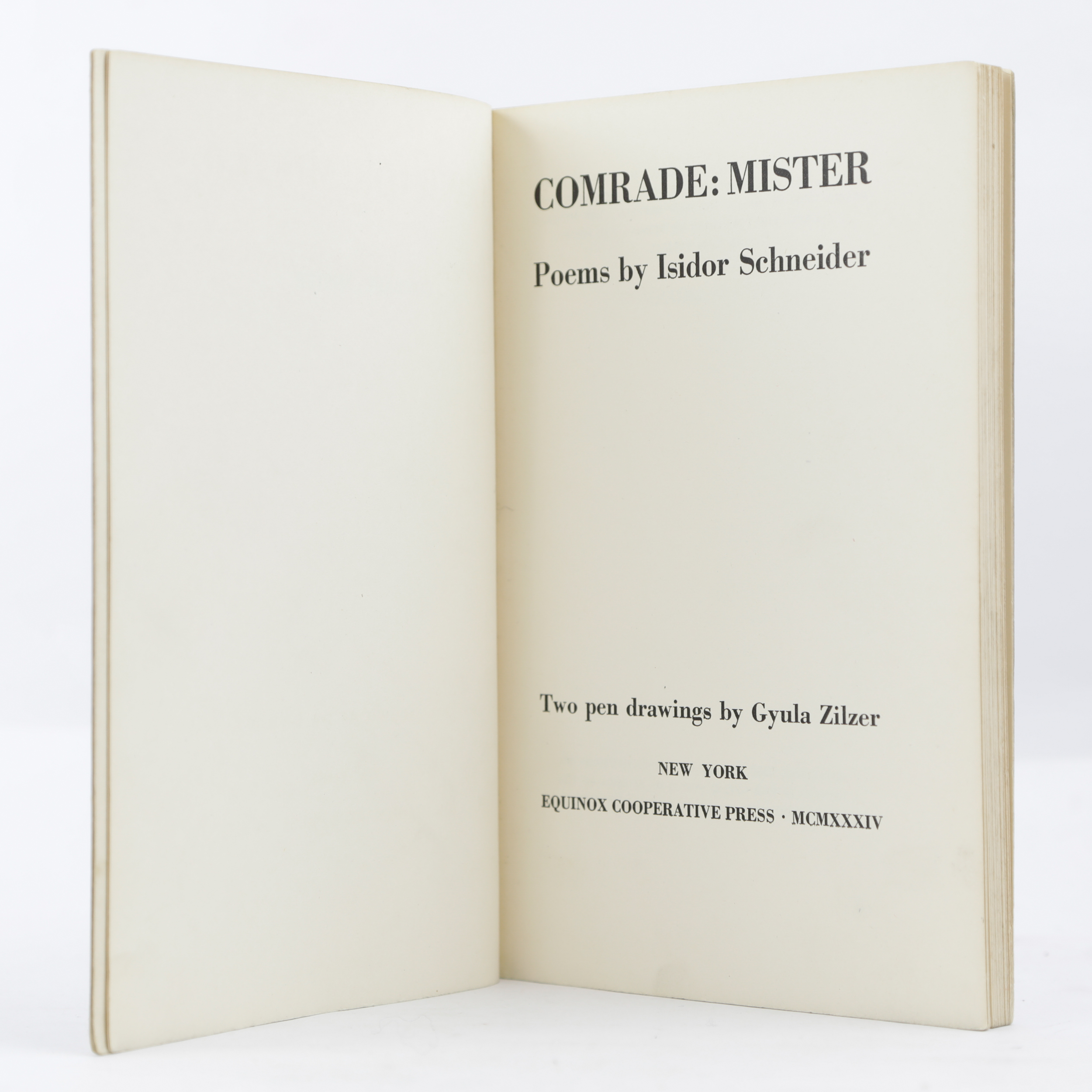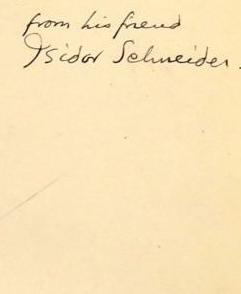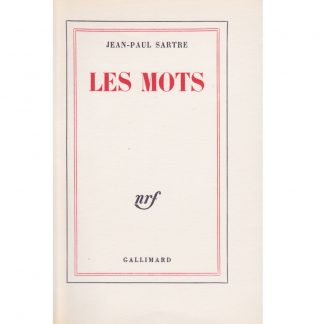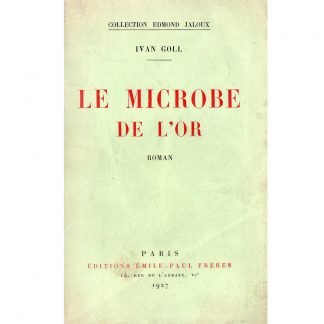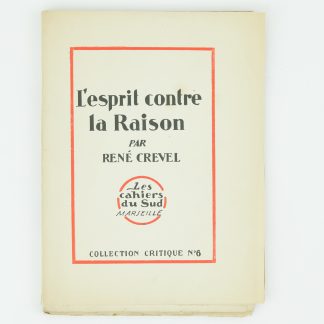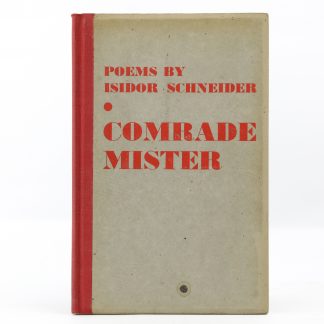Description
FIRST EDITION of this collection of 41 poems first published in the magazines The New Masses, Dynamo, The American Caravan, The Nation, New York Herald Tribune Books, The New Republic and The Menorah Journal.
The book is illustrated with two ink drawings by Hungarian artist Gyula Zilzer (1898-1969).
Originally from the Austro-Hungarian Empire, Isidor Schneider moved to the United States at the age of 6. There he contributed to a number of liberal journals, publishing first texts influenced by the Imagist movement and then, from the 1920s, pro-Communist poems urging workers to take social action. This collection spans the two periods of his work, with 25 Imagist poems and 16 pro-Communist poems separated by the essay "Toward Revolutionary Poetry", in which the author justifies the transformation of his approach: "Individualism had become more and more a malady. [...] As a consequence love poetry has fallen into morbid eroticism ; and the regard for nature into the contemplation of a wasteland. The world cries for a new social cohesion, and poets for a new theme."
FROM THE AUTHOR TO THE AMERICAN NOVELIST SHIRLEY JACKSON and her husband, the literary critic Stanley Edgar Hyman.
"For Shirley and Stanley
With affection
Isidor Schneider
A celebrated author of horror novels based on psychic disintegration (The Haunting of Hill House, We have Always Lived in the Castle...), Shirley Jackson also penned the short story "The Lottery", which caused a scandal when it was published in the New Yorker. The couple, whose friends included many Communist sympathisers, were frequently harassed by McCarthyism. Although they were never openly prosecuted, Shirley Jackson denounced this "witch-hunt" on several occasions in her popular work for children on the Salem witch trials, The Witchcraft of Salem Village.
FIRST EDITION of this collection of 41 poems which had previously been published in The New Masses, Dynamo, The American Caravan, The Nation, New York Herald Tribune Books, The New Republic and The Menorah Journal. With 2 ink drawings by Hungarian artist Gyula Zilzer (1898-1969).
Isidor Schneider moved from the Austro-Hungarian Empire to the US at the age of 6. There he contributed to many left-leaning journals and magazines. Though his first poems were strongly influenced by Imagism, with the turn of the 1920s, he began publishing pro-Communist poetry calling for the working class to demand social rights.
This collection draws on both periods of his literary life, with 25 Imagist pieces and 16 Communist ones divided by the essay "Toward Revolutionary Poetry," in which the author justifies the shift in his work: "Individualism had become more and more a malady. [...] As a consequence love poetry has fallen into morbid eroticism ; and the regard for nature into the contemplation of a wasteland. The world cries for a new social cohesion, and poets for a new theme."
INSCRIBED TO NOVELIST SHIRLEY JACKSON and her husband, literary critic Stanley Edger Hyman :
"For Shirley and Stanley
With affection
Isidor Schneider
Most famous for her short story "The Lottery", which caused a scandal upon being published by the New YorkerShirley Jackson also authored several haunting novels of psychological disintegration (The Haunting of Hill House, We have Always Lived in the Castle...). Because their friend circles included Communist sympathizers, Jackson and her husband were, on more than one occasion, the subject of The House Committee on Un-American Activities' investigations. Though they were never arrested, Jackson denounced the Communist "witch hunt" in The Witchcraft of Salem Villagea children's book about the Salem witch trials.
Publisher's binding, with red canvas spine and tan bevelled cardboard boards. Small dark stain on the upper board.
Bound in publisher's red half cloth with bevelled boards. Small dark stain on upper board.

